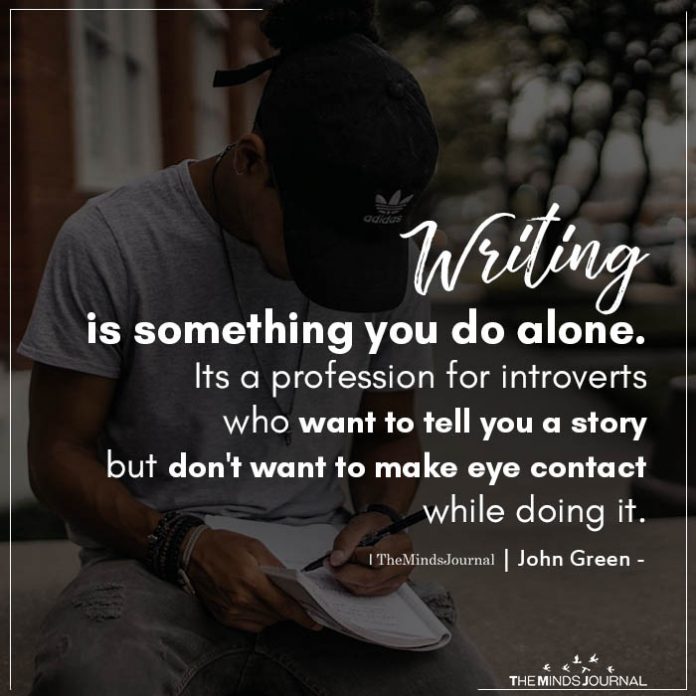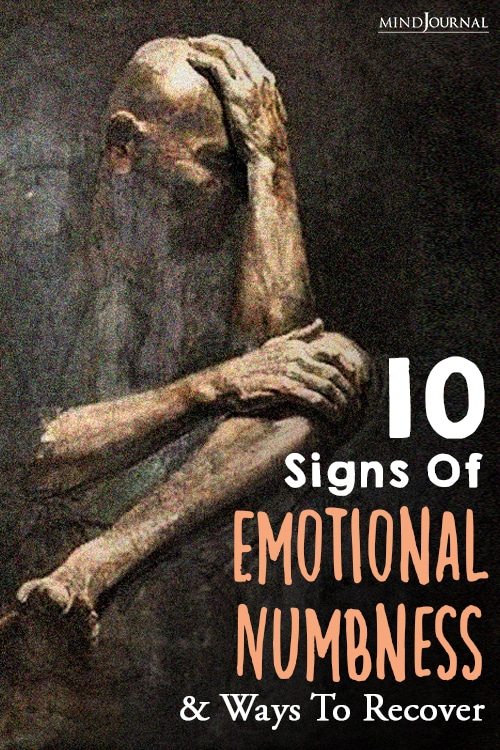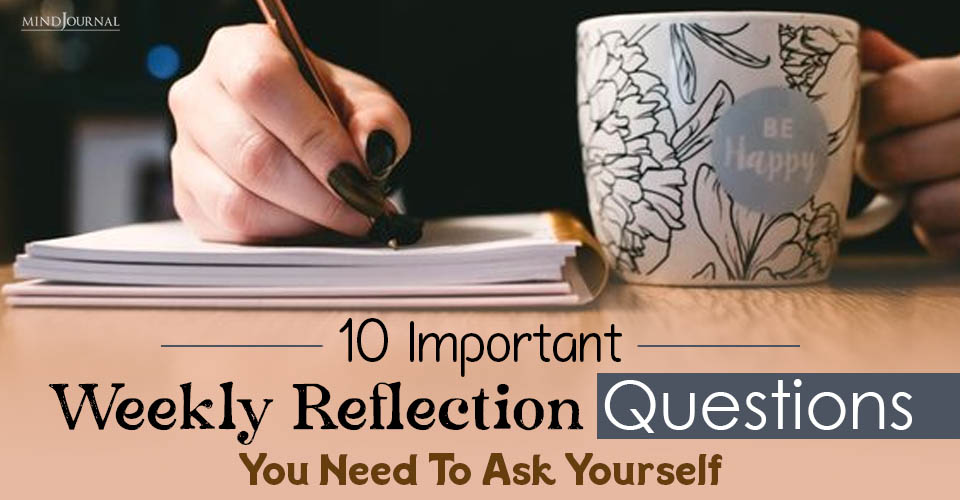Are you suffering from emotional numbness? At some point or another we’ve all heard these words before: “Suck it up, princess!” “Be a man!” “Stop being a cry-baby,” “Get over it,” “Stop being so sensitive,” “Get thicker skin!” Right?
While these words were likely spoken without consciously intending us long-term harm, they nevertheless point to a common and undeniably tragic truth in our society: that expressing your emotions is a sign of weakness, rather than strength.
If you were born into an emotionally repressed culture that valued the “masculine” ideals of efficiency and logic, it is likely that you struggle with some level of emotional numbness. If you were born into a family that shunned any form of strong emotional expression, it is even more likely that emotional numbing is an issue for you.
And if you experienced an extremely traumatic life event that was simply too overwhelming for you to handle (from which you haven’t recovered), I can almost guarantee that you suffer from emotional numbness.
So how does emotional numbness impact virtually every part of our life? And what advice can I share with you after going through my own struggle with this issue? Keep reading and you’ll find out.
WHAT IS EMOTIONAL NUMBNESS?
Emotional numbness is a defence mechanism employed by the mind to avoid intense and overwhelming emotions such as fear, hatred, jealousy, and grief. When you go emotionally numb, you lose the ability to feel and experience your emotions on a psychological and emotional level. In this sense, emotional numbness is often clinically connected with dissociation, which is the disconnection from one’s memories, identity, environment, body, or senses.
Related: Structural Dissociation: How Complex Trauma Causes A Split In Our Being
WHAT CAUSES EMOTIONAL NUMBNESS?
As with most issues, emotional numbness goes back to childhood and the way we were raised by our parents. Being abused by our parents physically, emotionally, sexually, psychologically, or spiritually can contribute towards our inability to self-regulate emotions, which results in emotional numbness. Feeling alienated or disconnected from one or both of our parents, or family at large, can also contribute towards emotional numbness. Being punished whether directly or indirectly for expressing our emotions in childhood also creates emotional numbness.
Numbing our emotions may also start after a severely traumatic experience, such as witnessing acts of violence, being assaulted, experiencing rape, suffering intense loss, or anything that we didn’t have the capacity to psychologically and emotionally handle in the moment. For this reason, emotional numbness is often a symptom of PTSD and various anxiety disorders.
Emotional numbness is also influenced by our culture and wider social circles, particularly those that emphasize being stoic, rational, and emotionally invulnerable (e.g. British, Chinese, Japanese, Russian).
THE DANGER OF EMOTIONAL NUMBNESS
If you even have the slightest inkling that you might be emotionally numb, it’s time to listen up. Emotional numbness is not a small character flaw or minor area of self-growth to improve in – it is a serious problem which needs to be addressed immediately.
Speaking from experience, emotional numbness has formed the root of many issues I have faced (and still continue to face) in my life. Due to my upbringing in an emotionally stunted, dogmatically religious family whom I felt disconnected from for the majority of my life, I never learned how to handle strong emotions. I was punished verbally, emotionally or physically anytime I expressed strong emotions, and freethinking or any form of dissent was rejected, resulting in being ostracized.
Related: The Stages Of Grief: Ways To Cope With Loss and Minimize The Pain
The combination of having a British father and a mother who was traumatized by her own emotionally unstable mother – on top of oppressive fundamentalist religion – led to grooming me as a stoic and “stable” person who was taught that expressing emotions was not only bad but shameful.
As you can see, sometimes there are numerous factors in play which may contribute to your inability to regulate intense emotions, and therefore resort to unconsciously numbing them. In my case, I learned that strong emotions = punishment in one form or another, and so I learned that they were dangerous to experience.
The danger of disconnecting from your emotions is that it can lead to a host of mental, emotional, physical, and spiritual issues. Such issues may include dysfunctional coping mechanisms (obsessive compulsions), mild to severe depression, spiritual emptiness, inability to enjoy life, inability to form close and fulfilling relationships, disconnection from the inner self, confusion, irritability, fatigue, addictions, chronic illnesses, and somatic illnesses (illnesses produced by the mind).
In extreme cases (and I’m talking about situations where emotional contact is nil), emotional numbness can lead to acts of cruelty.
WHY IS IT ‘THE SECRET ILLNESS’?
I call emotional numbness the secret illness because it is so pervasive in our society, and so socially acceptable, that it often flies underneath the radar. In a society that largely doesn’t know how to handle strong emotions in healthy ways, being stoic and “level-headed” is valued – yet this very same calm and collected facade often conceals unhealthy detachment from one’s feelings. Thus, emotional numbness is a secret illness because so many of us struggle with it, yet don’t even realize that we have it until chronic issues start emerging.
Related: How Toxic Family Dynamics Can Cause C-PTSD In Emotionally Intense Children
13 SIGNS YOU’RE STRUGGLING WITH EMOTIONAL NUMBNESS
Emotional detachment is not always a bad thing. It comes in handy when you need to maintain boundaries, avoid undesired energy overload from others, and even help others in crisis situations. But emotional detachment turns into its unhealthy twin, emotional numbness when it becomes an automatic inner defense mechanism.
“What’s so great about feeling strong emotions?” you might ask. The answer is that without feeling our emotions, we don’t have the capacity to live and learn from them, experience the beauty and depth of life, and learn to ultimately transcend attachment to them (which is part of spiritual enlightenment).
Here are some of the most significant signs of emotional numbness that you should look out for:
- Inability to express strong negative or positive emotions
- Inability to “fully participate” in life (i.e. feeling like you’re a passive observer)
- Feeling that life is like a dream (a sense unreality)
- Living on autopilot
- Lack of interest in activities others find enjoyable
- Feeling distant from others
- The tendency to withdraw from friends and family members
- Emotions are only felt in the body as sensations, but not by the mind
- Dislike of people who express strong emotions (both positive and negative)
- Not feeling anything in situations that would usually generate strong emotion
- Panic or terror when strong emotions eventually breakthrough
- Feeling empty inside
- Physical and emotional numbness or “flatness”
In extreme circumstances (such as in PTSD sufferers), emotional numbness may even influence the desire to commit suicide. If you are considering suicide, please seek out support immediately (click here to locate your country’s suicide hotline).
Related: 3 Types Of Childhood Emotional Wounds That Keep You Stuck In Adult Life
HOW TO OVERCOME EMOTIONAL NUMBNESS
Like any psychological defence mechanism, emotional numbing can be complex to deal with, and often requires support from a trained professional such as a therapist. If you feel that emotional numbness is significantly impairing your life, please do an act of self-compassion and seek out support either locally or online (there are even free counselling services such as 7cups).
For the time being, here are some helpful practices which I have personally found to increase my ability to feel, cope with, and express strong emotions:
1. Anchor yourself to your body
As mentioned above, emotional numbing is connected to dissociation (mental disconnection from one part of yourself). In my case, whenever I experience strong emotions, my automatic response is to either a) only feel the emotions in my body, not my mind, or b) to have a complete meltdown. In both cases, one of the best self-soothing mechanisms I’ve learned is to anchor myself to my body through mindfulness and physical contact. Similar to what a mother does with her child, I tightly but gently hold one area of my body – usually my hand or stomach. This method helps me to feel contained and grounded in my body.
I also recommend using shapewear or a pressure vest to help you in extremely emotionally turbulent periods to anchor yourself to your body. Shapewear is used by women and men to keep “love handles” and other body parts slim and defined. For our purposes, shapewear is like a hug to the body that will help you feel safe and ‘held together.’ Pressure vests are a little more expensive and they are used by people with sensory integration disorders (such as autism) to relax.
2. Deep breathing
Whether used alone or in conjunction with the above-mentioned technique, deep breathing is a simple and easy way to help you mindfully move through whatever you’re experiencing. This practice is particularly useful when intense feelings such as fear or rage breakthrough. There are many books out there which talk about the importance of deep breathing, and there are many online tutorials with breathing techniques. I recommend sticking to something simple, something you don’t have to think about too much, and something that doesn’t feel forced. The point of deep breathing isn’t to follow someone else’s technique perfectly, it is to use your breath (in whatever way suits you), to calm your mind and body.
3. Keep a journal of sad thoughts

I realize this suggestion may sound a tad bit melancholic, but it’s a practice worthy of your time and effort, particularly if you’re wanting to feel and express your emotions.
In a physical journal or online diary, spend five to ten minutes every day writing down something which triggers even the slightest pang of sadness in you. For example, you might write down a memory of your dog who died, an issue in the world, something someone said to you, a scene from a movie, a daily struggle … or virtually anything that is upsetting (or what you imagine would be upsetting).
Creating a sad thoughts diary has two main benefits. One, it helps you express your emotions, even if in an indirect way at first. And two, it acts as a catalyst for feeling and letting out your emotions, particularly when you need momentum (I’ll elaborate more on this soon).
Always try to finish your sad thought journalling with something uplifting, like reading the uplifting news subreddit, spending time with someone you love, playing with a pet, or watching something entertaining on youtube or Netflix.
4. Catharsis (Let it all out, baby!)
When emotionally numbing ourselves becomes our default defence mechanism, we tend to have a huge amount of suppressed emotion lying just beneath our conscious awareness. In order to safely and effectively express your suppressed emotions, try some form of catharsis. Catharsis may involve screaming into or punching a pillow, using your sad thoughts journal (mentioned above) to stimulate sadness and crying, intense emotional-fuelled exercise, impassioned dancing, or dynamic meditation.
Related: 20+ Best Meditation Music For Relief From Stress and Anxiety
Regular catharsis should be a must on your journey. Without regularly ‘letting it all out,’ you run the risk of experiencing the repercussions of festering emotions (i.e. depression, emptiness, chronic illness, etc.).
5. Yoga and self-massage
Yoga is a well-known way of helping to clear and balance your energy. Not only that, but yoga often has a way of releasing emotions stored in the body. I recommend doing slow and gentle forms of yoga such as Hatha yoga for at least ten minutes a day. Remember, the goal isn’t to become some Instagram-perfect yoga star; it is to connect with your body, mind, and heart.
Our unexpressed and repressed emotions are often stored within our bodies. I like to think of our bodies as being reflections of our unconscious mind: they are maps that help us to figure out what we are keeping locked away, and what unresolved issues we need to face.
In my article about chronic muscle tension, I list the nine types of emotions trapped in different areas of the body. In order to release these emotions, I regularly use something called the ‘Acuball’ to introduce fresh blood flow and energy into these tense areas. I like the Acuball because it gives me a deep tissue massage, while also helping me to stay grounded in my body, relax, and release pent-up stress.
Related: 6 Yoga Mudras To Heal Common Ailments
6. Creativity relatively express your feelings (or lack thereof)
Write a song, doodle in a journal, paint a picture, create a collage, find some way of expressing what emotion you last felt. If you struggle to feel anything at all, express that artistically. Grab those greys and blacks and turn that damn page into your own work of art. Pay attention to how you feel afterwards. Does even the slightest feeling of satisfaction enter you? Journal about these emotions.
7. Take care of your inner child
As it was your child self that likely copped the trauma that caused you to default to emotional numbing, take care of this part of you. Practice inner child work and find ways of comforting and nurturing this vulnerable place within you. You may even like to create empowering affirmations for your inner child to help him or her access emotions. For example, you might repeat to yourself when you are in a difficult circumstance, “It is OK for me to feel,” “It is safe for me to feel sad,” “My anger is valid,” “Being vulnerable is being strong,” and so forth.
Related: How Reconnecting With My Inner Child Changed My Life
8. Dedicate space and time to feeling
In our busy lives, it is very easy to numb and distract ourselves with social media, the TV, shopping, food, social commitments, and other things that constantly cause us to look outside. Looking inside is much harder and requires far more self-discipline, hence why most people don’t do it. If you are serious about overcoming your emotional numbness, you will need to dedicate space and time to all of the activities I have mentioned in this article. If you struggle with self-discipline, I recommend making yourself externally accountable by joining a meditation group or other practice to help you turn inwards. Please don’t skip this step, it is imperative that you spend time exploring your inner self, and in particular, what you are repressing and why.
Written By Aletheia Luna
Originally appeared on Lonerwolf.com











Leave a Reply